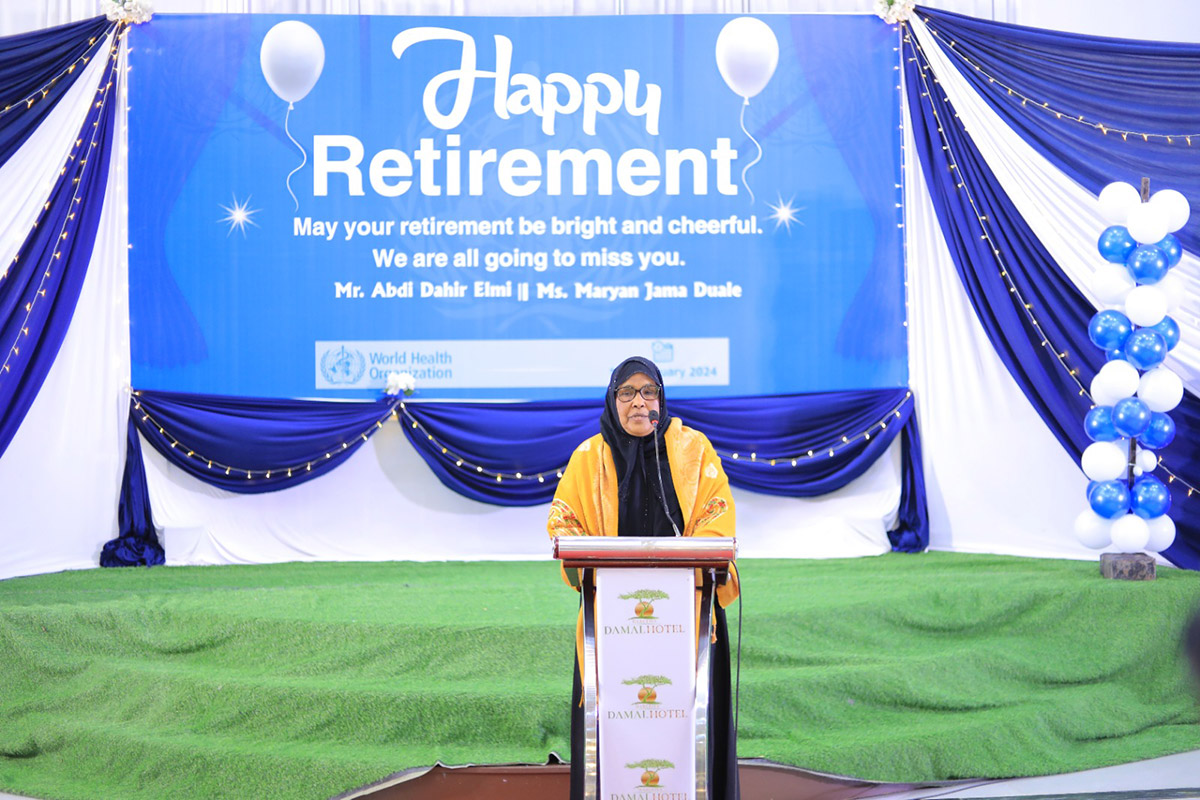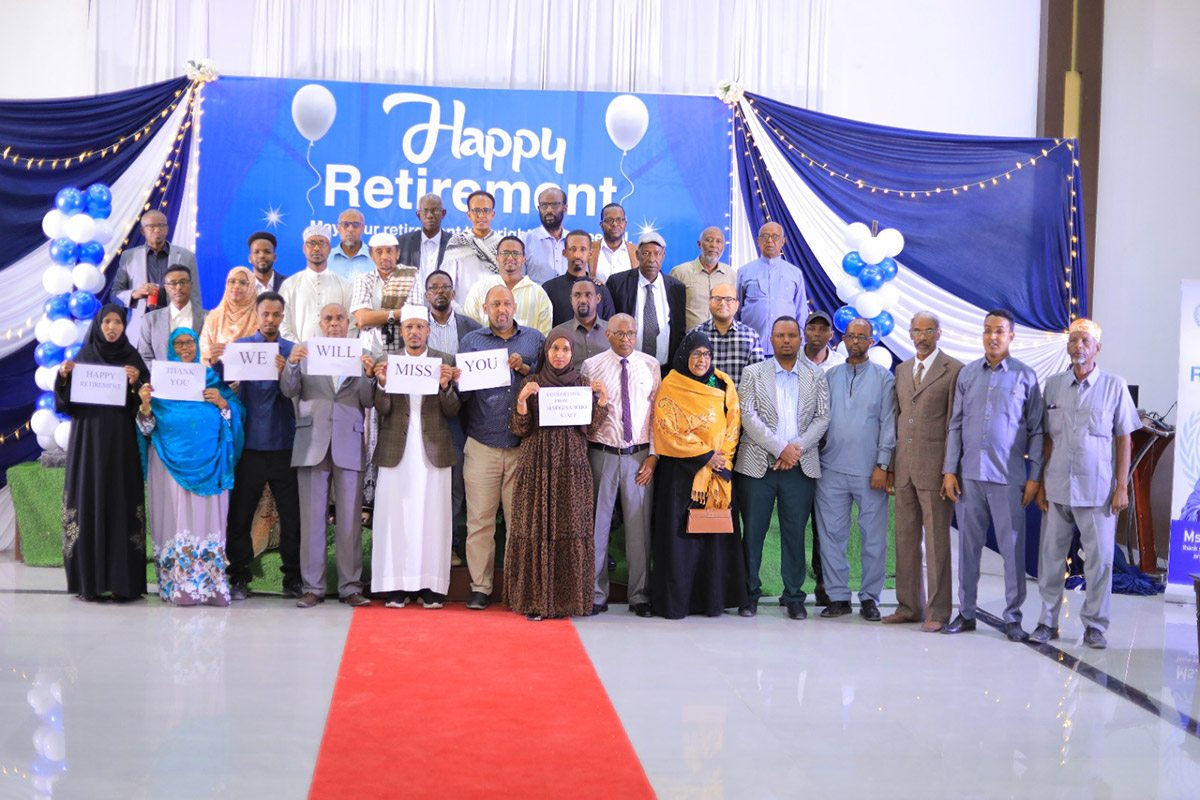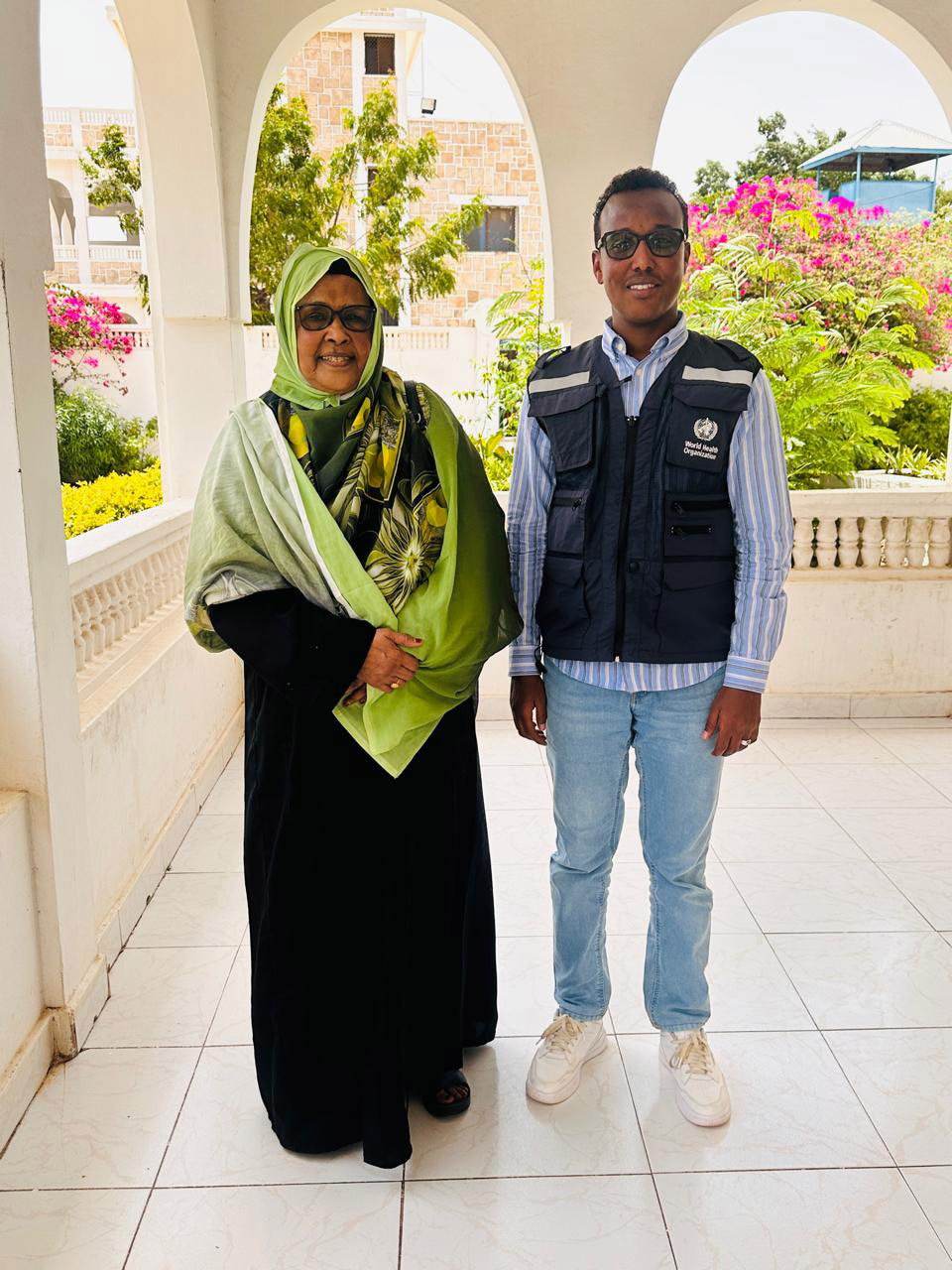Polio champion Maryan Jama Du’ale retires after 2.5 decades
 Maryam Jama Du’ale at her retirement farewell ceremony hosted by WHO Somalia in Hargeisa, Somaliland. Photo credit: WHO/WHO Somalia31 July 2024 – In April 1998, certified nurse and public health officer Maryan Jama Du’ale was invited to a workshop to get familiar with a new initiative: the National Polio Eradication Programme. She made an impression at the event, which was hosted by WHO and the health ministry of the self-declared administration of Somaliland. Within a few weeks, Maryan joined the programme as a district polio officer in Hargeisa, Somaliland.
Maryam Jama Du’ale at her retirement farewell ceremony hosted by WHO Somalia in Hargeisa, Somaliland. Photo credit: WHO/WHO Somalia31 July 2024 – In April 1998, certified nurse and public health officer Maryan Jama Du’ale was invited to a workshop to get familiar with a new initiative: the National Polio Eradication Programme. She made an impression at the event, which was hosted by WHO and the health ministry of the self-declared administration of Somaliland. Within a few weeks, Maryan joined the programme as a district polio officer in Hargeisa, Somaliland.
Her role included setting up surveillance sites to search for poliovirus in children aged under 15 years. She was also tasked with supporting the implementation of polio vaccination campaigns in Somaliland and supervising her teams to quickly address any setbacks.
When Maryan began her work, Somalia was engulfed in a civil war, its health infrastructure was in ruins and vaccine-preventable diseases, such as polio, were rampant. Back then, many people in the country did not know that polio existed – even though Somalia confirmed 12 wild poliovirus (WPV) cases in 1998.
Like many other communities around the world, many people in Somalia were afraid of vaccination. Limited awareness of polio-related activities also meant that some were initially sceptical about the need to collect stool samples from children presenting with acute flaccid paralysis (AFP), a common symptom of poliomyelitis.
“Community members thought vaccination would stop childbirth or that it was against our religion,” explains Maryan. “It took us a lot of time and effort to help people to understand that polio vaccines are safe and rigorously tested before use. Vaccine acceptance is much better now, although we face other challenges, such as complexities in reaching children in insecure areas. However, most people now understand that we collect stool samples from children with AFP to test for poliovirus.”
Inspired by a child to eradicate polio
 Group photo taken with retiree Maryan Jama Du’ale at her farewell ceremony. Photo credit: WHO/WHO SomaliaEarly on in her work, Maryan met a child who had been paralysed by WPV in the village of Qool-buulale, on the Somalia–Ethiopia border. It was a meeting that shaped the rest of her career.
Group photo taken with retiree Maryan Jama Du’ale at her farewell ceremony. Photo credit: WHO/WHO SomaliaEarly on in her work, Maryan met a child who had been paralysed by WPV in the village of Qool-buulale, on the Somalia–Ethiopia border. It was a meeting that shaped the rest of her career.
“That first encounter with a child paralysed by polio moved me. It made me understand the importance and impact of our work. I saw first-hand how our work could prevent further spread of polioviruses and protect children from lifelong paralysis,” she says.
The available health facilities, which were inadequate and far apart, could not address emerging cases and the need to provide vaccines.
“When we heard about polio cases, we often had to use donkey carts or camels to transport vaccines to reach remote villages or mountains. When a case was reported near the border, we would cross all kinds of terrain to reach children,” adds Maryan.
Over her career, Maryan and her teams helped ensure children received polio vaccinations and other health services. They did this with the help of dedicated medical doctors and trained health volunteers, and through social mobilization and outreach campaigns, among other strategies, backed by partners.
Owing to these immense efforts, the National Polio Eradication Programme made significant progress. Four years after the immunization programme was established, Somalia interrupted transmission of WPV, in 1998. Later, Somalia confirmed and closed a couple of imported WPV1 outbreaks, from 2005 to 2007 and from 2013 to 2014.
 WHO Somalia Communication Officer Khadar Hared is pictured with Maryan Jama Du’ale after interviewing the polio champion about her experiences in Hargeisa. Photo credit: WHO/WHO SomaliaThe last time Maryan saw a child with WPV in Somaliland was in 2017 in Burco, Togdheer. In October 2017, however, Somalia confirmed an outbreak of variant poliovirus, which occurs in places where children have low immunity. Although Somalia has closed WPV and variant polio outbreaks before, the variant poliovirus that was detected in 2017 is still smouldering in the country. Maryan firmly believes Somalia will end this outbreak soon too.
WHO Somalia Communication Officer Khadar Hared is pictured with Maryan Jama Du’ale after interviewing the polio champion about her experiences in Hargeisa. Photo credit: WHO/WHO SomaliaThe last time Maryan saw a child with WPV in Somaliland was in 2017 in Burco, Togdheer. In October 2017, however, Somalia confirmed an outbreak of variant poliovirus, which occurs in places where children have low immunity. Although Somalia has closed WPV and variant polio outbreaks before, the variant poliovirus that was detected in 2017 is still smouldering in the country. Maryan firmly believes Somalia will end this outbreak soon too.
“Witnessing that our collective efforts, alongside the government and partners, had contributed to stopping poliovirus spread, time and again, continuously filled me with immense pride and happiness,” adds Maryan.
Passing on the baton after 26 years of service
Gradually, by earning communities’ trust and working to expand the programme over the years, Maryan rose through the ranks to become a state polio eradication officer. In this role, she managed eradication efforts across Somaliland. She retired in January 2024, after 26 years of exemplary service.
Maryan’s story reveals the power of resilience and the unwavering commitment of the health workforce to end polio in Somalia, even amid great adversity.


